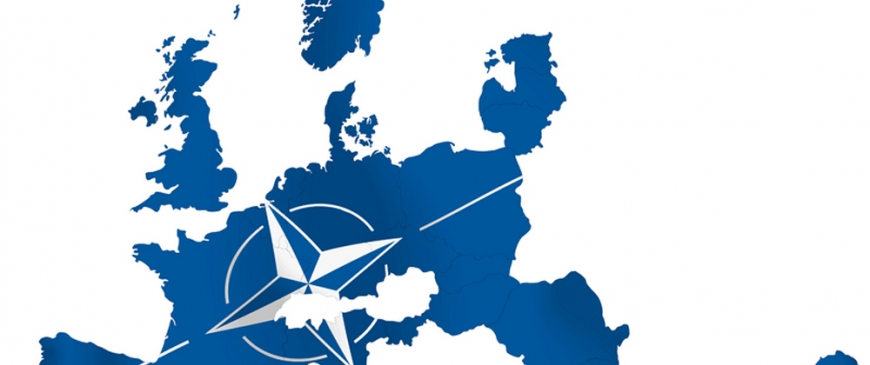
The EU and NATO will both want to make Brexit work
The leaders of Nato's 28 member-states met in Warsaw last week against a background of security crises on all sides. As the summit declaration put it, there is "an arc of insecurity and instability along Nato's periphery".
One concrete and encouraging response to the varied challenges was a joint declaration by the NATO Secretary General and the Presidents of the European Council and the European Commission on giving new impetus and substance to the partnership between the EU and Nato. The two organisations agreed to co-operate in a number of areas, from countering hybrid warfare to improving maritime security.
The EU and NATO have both realised that the crises they face do not fit neatly into institutional boxes. Russia's annexation of Crimea and invasion of eastern Ukraine demanded both sanctions, imposed by the EU, and military reassurance from Nato for allies in Central and Eastern Europe. Both organisations have something to contribute to solving the migrant crisis in the Mediterranean; to improving resilience in the face of cyber threats; and to making European defence industries more efficient. The joint declaration showed new pragmatism on the part of the EU, recognising that it is not in a competition for influence, but that "a stronger EU means a stronger NATO, and a stronger Nato means a stronger EU", as Commission President Jean-Claude Juncker put it.
But the joint declaration was also a response to a challenge that it did not mention, but that hovered in the background of every discussion in Warsaw: the possible consequences for European security of the departure of the UK, one of the most pro-NATO countries, from the EU. Thoughtful officials in many EU countries, and in Brussels itself, know that the loss of the UK's influence will damage the EU's ability to mount operations in its neighbourhood.
In decades past, some US officials would have thought that keeping Europe dependent on America for its security was a useful way to guarantee Washington's influence. But most US officials these days would like to see Europeans doing more for their own defence and security. For the US, there are advantages in having an EU willing and able to carry out operations (as in Mali) in which the US (and therefore NATO) does not wish to get involved. But an EU minus the UK will be less capable of operating in distant theatres, and more reliant on the US for help.
At the same time, after Brexit the UK itself will struggle to increase its defence efforts (in spite of agreeing to station 650 troops in Estonia and Poland as part of NATO's deterrent force in Central Europe). The suggestion by former Nato Supreme Allied Commander James Stavridis that a significant number of British forces would be released from EU duties and available to Nato is mistaken: the UK has generally contributed small numbers of specialists to EU missions, rather than large units. Rather, there is a risk that Brexit leaves the European contribution to NATO even more inadequate, while the UK itself becomes more isolationist.
In Warsaw, David Cameron did his best to project the message that leaving the EU has not diminished Britain's role as a major power, stressing that "while Britain may be leaving the European Union, we are not withdrawing from the world". But whoever succeeds Cameron as Conservative Party leader and prime minister will have to contend with a party and a country that is less interested in other countries' problems. If Brexit hits the UK economy as badly as forecast by the IMF and other experts, defence and overseas assistance would be among the budgets vulnerable to cuts. And if Scotland at some point votes in favour of independence, the UK would lose a significant part of its defence infrastructure, including the Trident submarine base at Faslane.
Against that background, both the EU and Nato will have an interest in showing that Brexit will not undermine either the capability or the resolve of the two organisations. European countries will need to put more forces in the field, reversing past cuts and compensating for the UK's absence, if they are to show the US that they are making a serious effort to share the burden of defending Europe and European interests. The EU-Nato joint declaration was a clear message that regardless of Brexit, the two organisations are committed to co-operating rather than competing to provide security and defence in and for Europe.
Traditionally, the UK has acted as a bridge between Nato (and especially the US) and the EU. Once outside the EU, it will no longer be able to do that. But Brexit or not, if in future the United Kingdom chooses or is obliged to use force it will almost always find itself working in coalition with other Europeans. Nato, the EU and Britain itself all have an interest in ensuring that co-operation is as smooth as possible.
Ian Bond is director of foreign policy at the Centre for European Reform.
